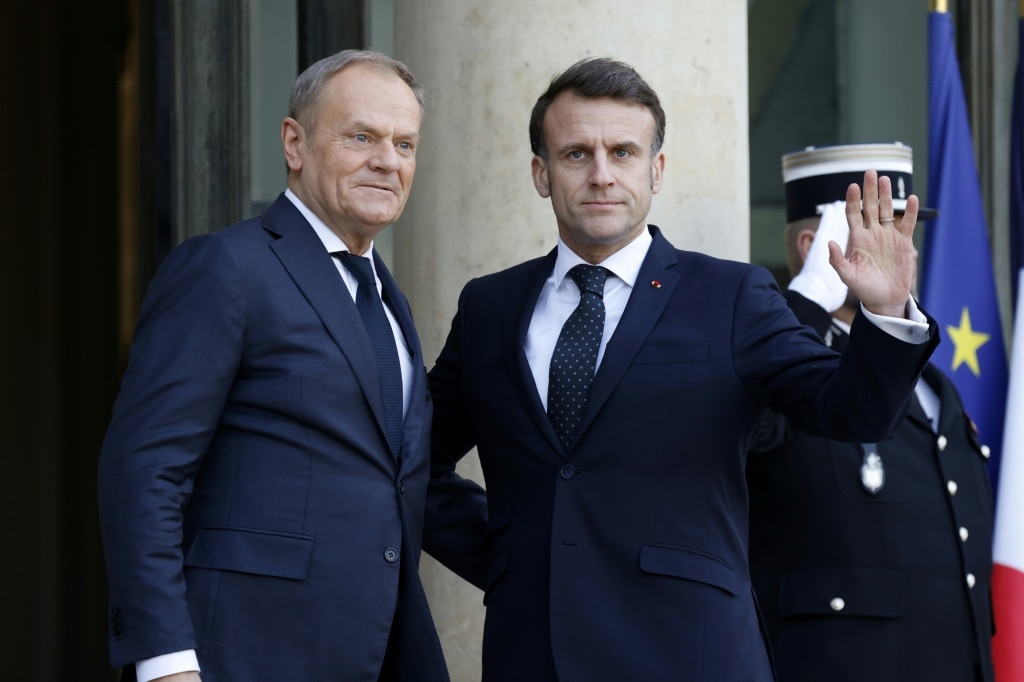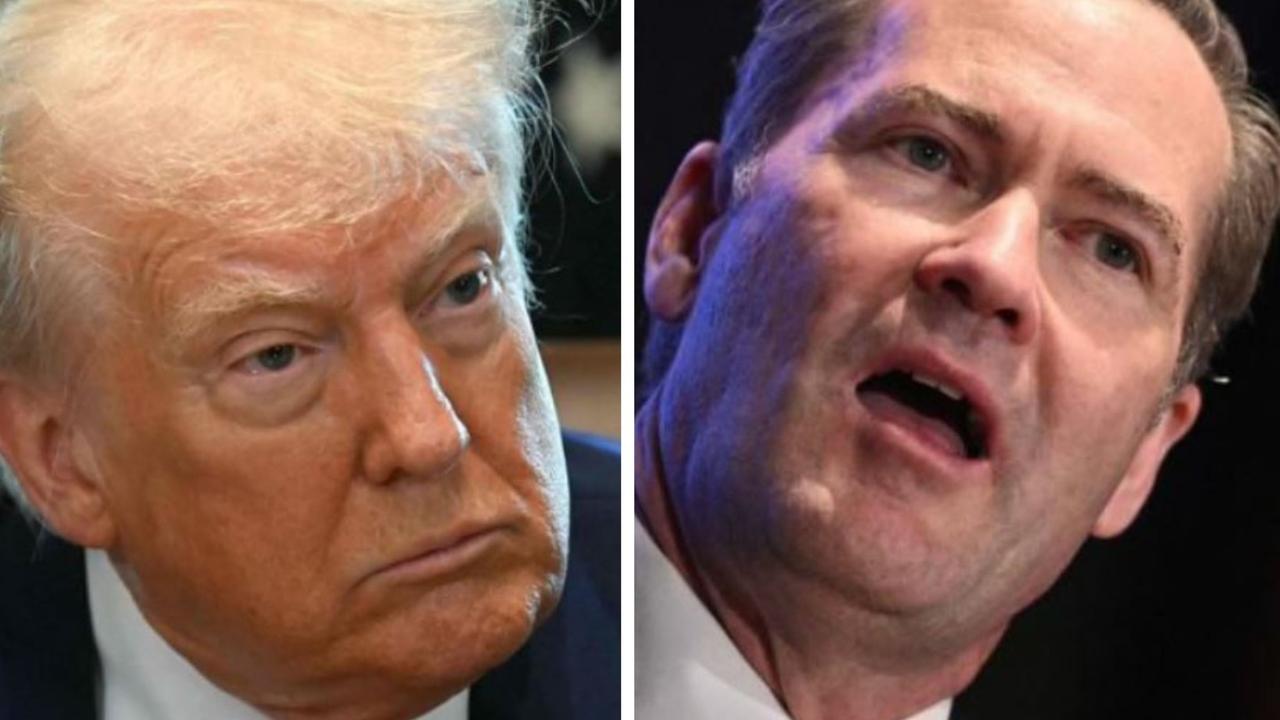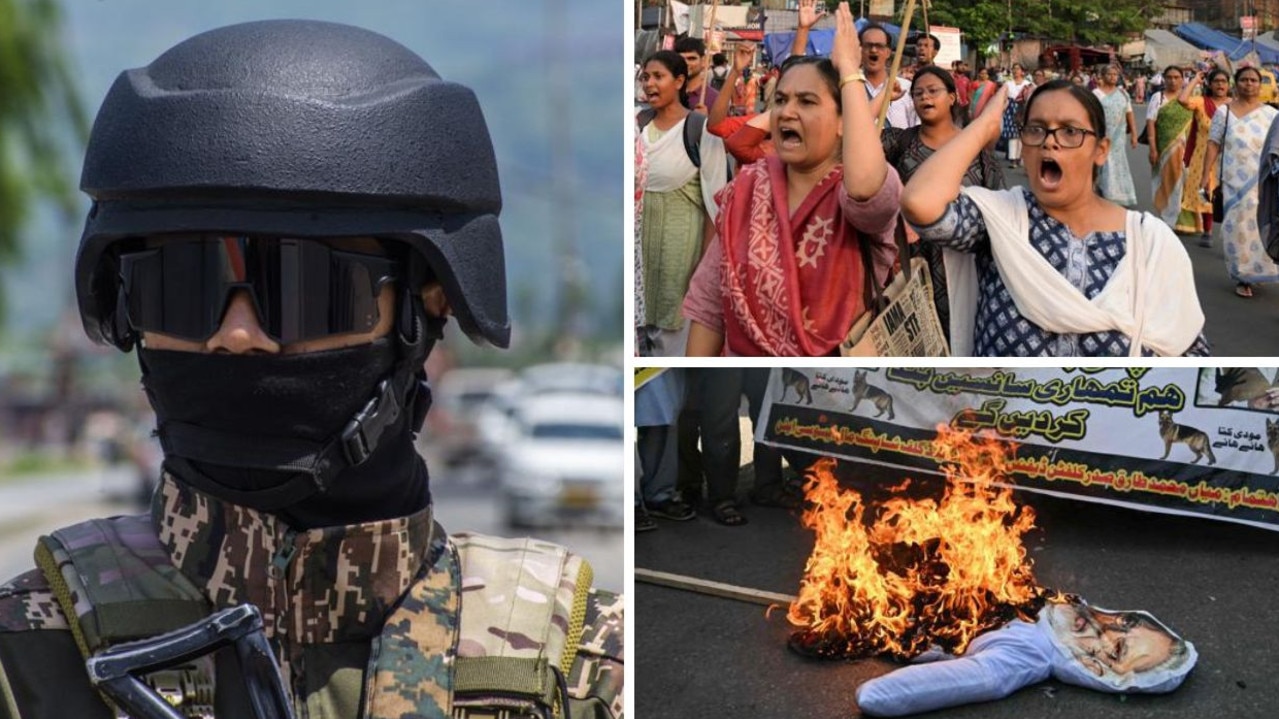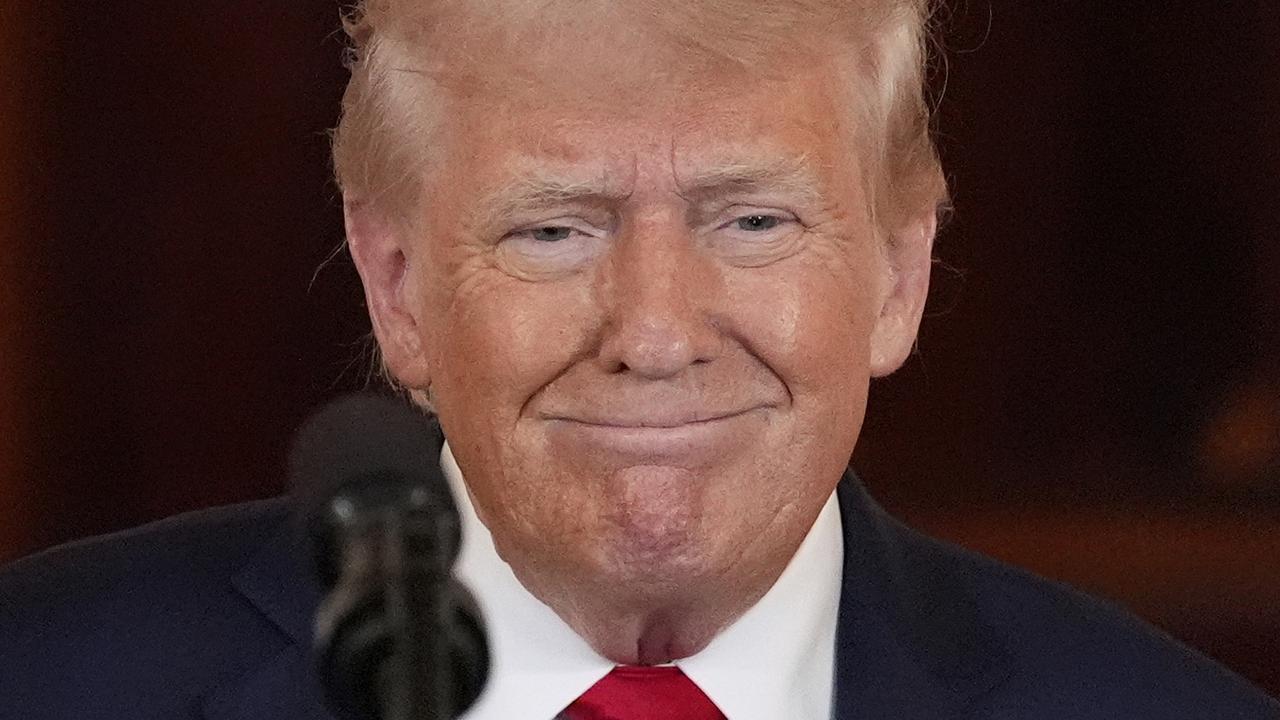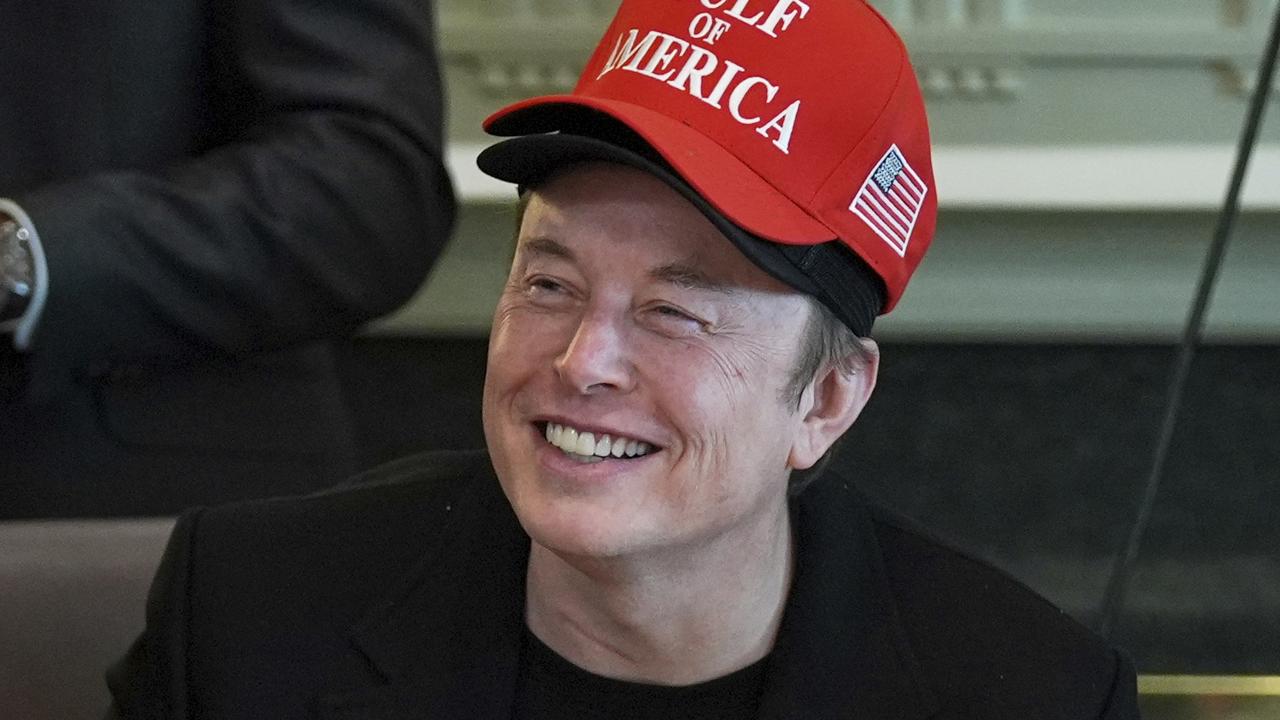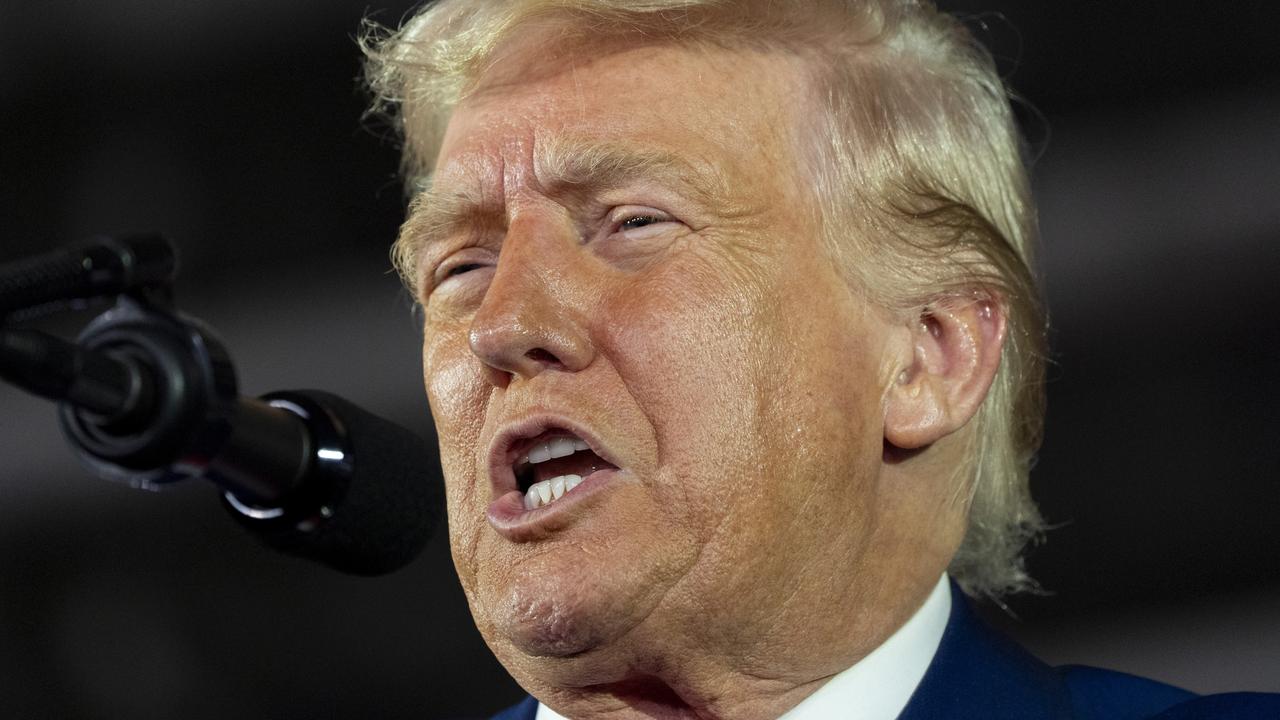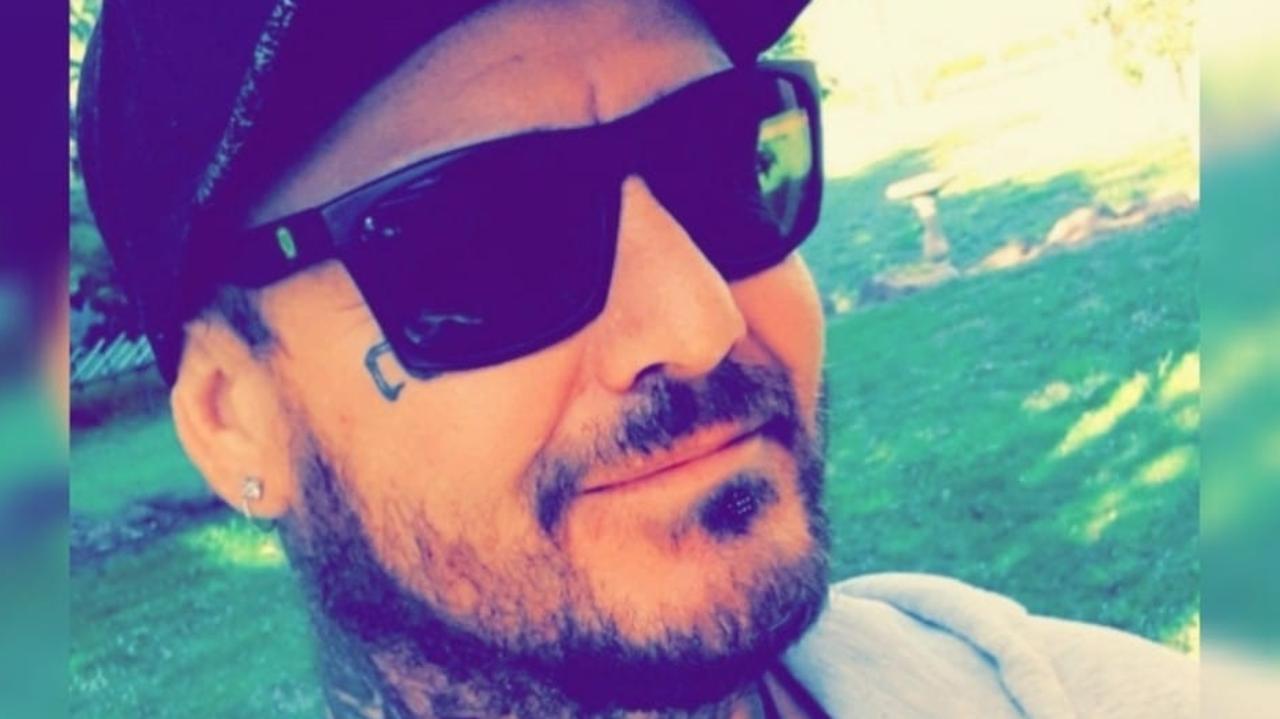Donald Trump tells invaded Ukraine it ‘should have never started’ war with Russia as controversy erupts over its exclusion from peace talks
Asked about Ukraine’s exclusion from peace talks with Russia, Donald Trump delivered a response that astonished viewers.
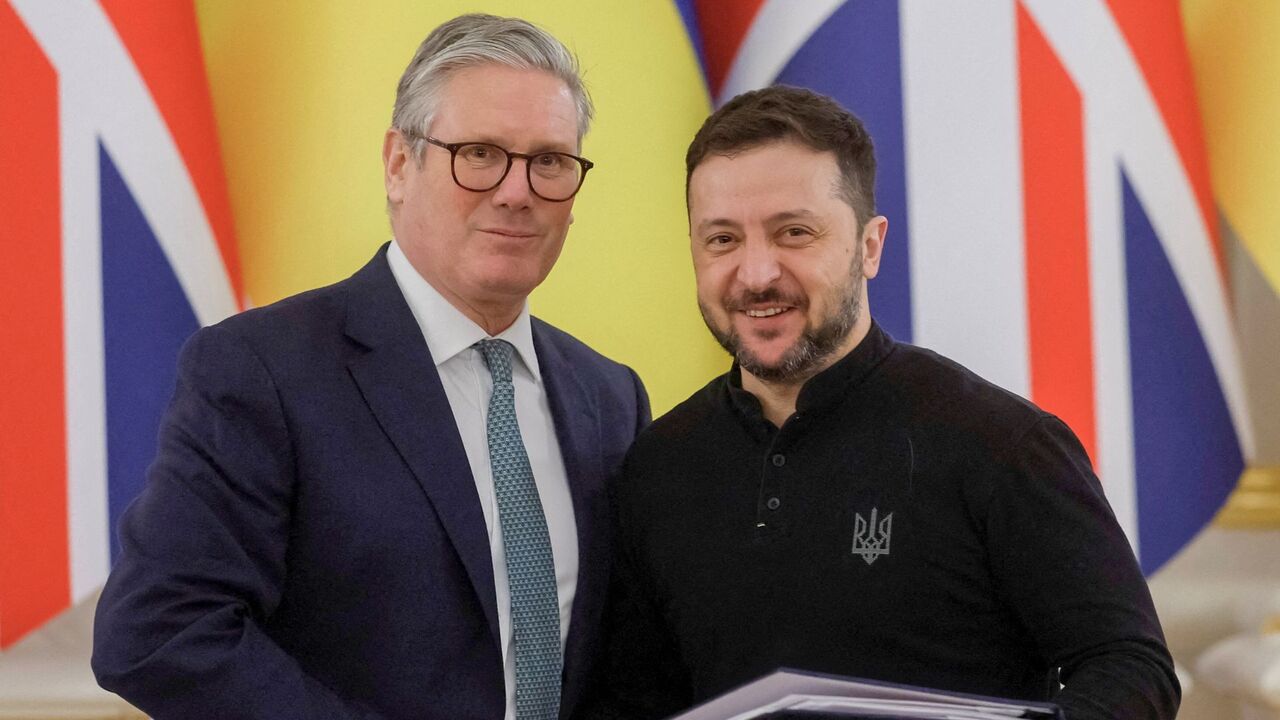
World
Don't miss out on the headlines from World. Followed categories will be added to My News.
Donald Trump has fired back at Ukraine over its displeasure at being excluded from peace negotiations with Russia, telling the victim of Vladimir Putin’s invasion it “should have never started” the war in extraordinary new comments.
The American President, speaking to reporters at his Florida resort, Mar-a-Lago, laid the blame for the war at Ukraine’s feet, arguing that its President Volodymyr Zelensky should have given Russia chunks of his country’s territory in an effort to stave off the invasion.
“I think I have the power to end this war, and I think it’s going very well. But today I heard, ‘Oh we weren’t invited.’ Well you’ve been there for three years,” Mr Trump said.
“You should have ended it three years (ago). You should have never started it. You could have made a deal,” he added.
“I could have made a deal for Ukraine that would have given them almost all of the land. And no people would have been killed. No city would have been demolished. Not one home would have been knocked down.
“But they chose not to do it that way.”
Note the “almost” in those quotes above.
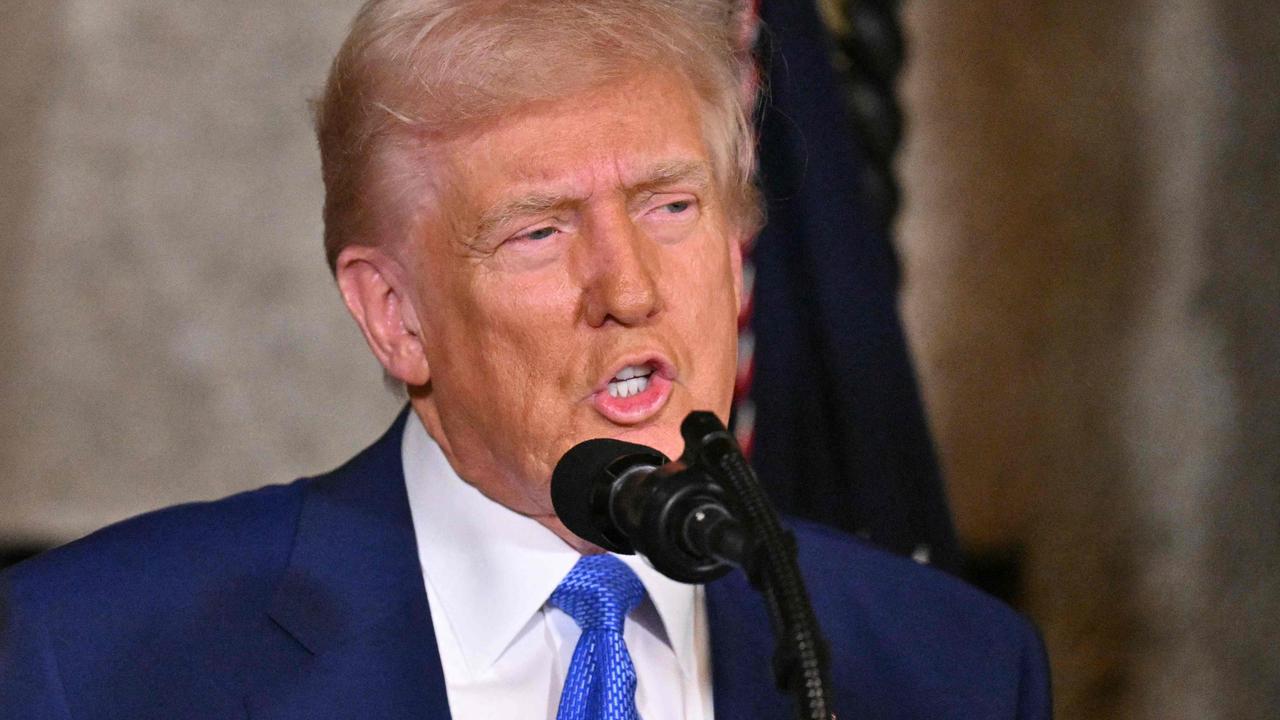
Mr Trump’s Secretary of State, Marco Rubio, met with representatives of Russia in Saudi Arabia overnight, including Foreign Minister Sergei Lavrov.
“Do you have any message for Ukrainians who, after three years of fighting, might feel betrayed or disappointed at not having a seat at these initial talks?” a reporter asked the US President.
“I think, I’m really disappointed in what’s happened,” said Mr Trump.
“I’ve been watching this for three years. It’s a war that would have never happened if I was president. And I have been watching these people being killed at levels you’ve not even seen since the Second World War.
“I hear that they’re upset about not having a seat. I mean they’ve had a seat for three years. And a long time before that. This could have been settled very easily. A half-baked negotiator could have settled this years ago, I think without the loss of much land. Very little land. Without the loss of any lives, and without the loss of cities.
“So when they’re worried about not being seated? I mean, somebody there should have gone in and made a deal a long time ago.”
Another reporter asked about the Russian demand, as part of these negotiations, that Ukraine hold new elections. Its regularly scheduled elections have been delayed by the war.
“We’re hearing that Russia wants to force Ukraine to hold new elections in order to sign any kind of a peace deal. Is that something the US would ever support?” a reporter asked.
“Well we have a situation where we haven’t had elections in Ukraine. Where we have martial law, essentially, in Ukraine. Where the leader in Ukraine – I mean, I hate to say it, but he’s down at (a) 4 per cent approval rating – and where a country has been blown to smithereens. You’ve got – most of the cities are laying on their sides. The buildings are on their sides. It looks like a massive demolition site.
“So many of the cities. They haven’t done it in Kiev because I guess they don’t want to shoot too many rockets in there. They’ve done it 20 per cent, but they haven’t done it 100 per cent. If they wanted to do it 100 per cent, it would probably happen very quickly.”
(I should note that I’m transcribing Mr Trump’s pronunciation of Kyiv, there. Ukraine prefers the latter, as the former is the traditional Russian proununciation.)
“But you have cities that are absolutely decimated. And yeah I would say that, you know, if you want a seat at the table, the people – wouldn’t the people of Ukraine have to say, you know, ‘It’s been a long time since we’ve had an election’? That’s not a Russia thing. That’s something coming from me, and from many other countries also.”
I’m unclear on where, precisely, Mr Trump got that 4 per cent figure, regarding Volodymyr Zelensky’s approval rating. The most recent public data puts it lower than its peak, in 2023, but still above 50 per cent.
There is no poll I can find that puts it remotely close to single digits.
Around the same time as Mr Trump’s comments, his close adviser Elon Musk amplified anti-Zelensky rhetoric on social media.
“Zelensky doesn’t want peace, he wants money and power,” said a prominent pro-Trump account, Gunther Eagleman (presumably not his real name).
“100 per cent,” Mr Musk replied.
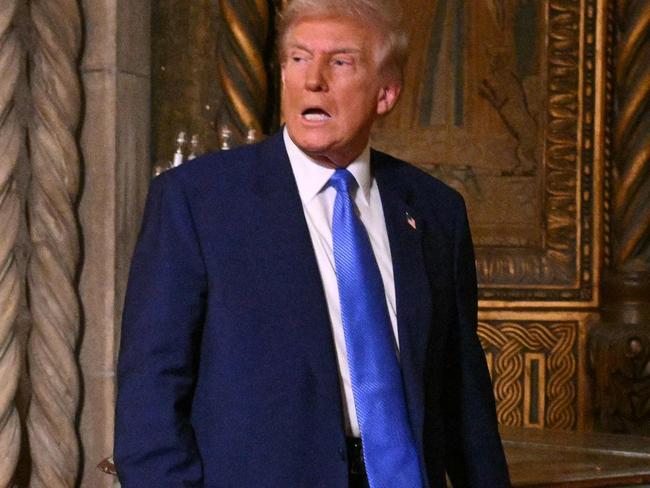
US accused of ‘blackmail’
Meanwhile the United States has been accused of trying to intimidate Ukraine into signing over key resources in exchange for aid in its efforts to repel the invasion.
The “blackmail” allegation landed on Tuesday evening, Australian time. And it came as US officials, led by Mr Rubio, met with their Russian counterparts.
As previously mentioned, there were no Ukrainian representatives at the meeting.
Mr Rubio and his opposite, Lavrov, committed to restart diplomatic relations between the US and Russia, which has been a pariah among Western countries since its invasion started.
They also confirmed that the two nations would commence formal negotiations for a peace deal, though Russia has already laid out demands Ukraine would find unacceptable.
The Ukrainian government has accused the Trump administration of “appeasing” Russian dictator Vladimir Putin – who’s reportedly agreed to talk to Mr Zelensky “if necessary”.
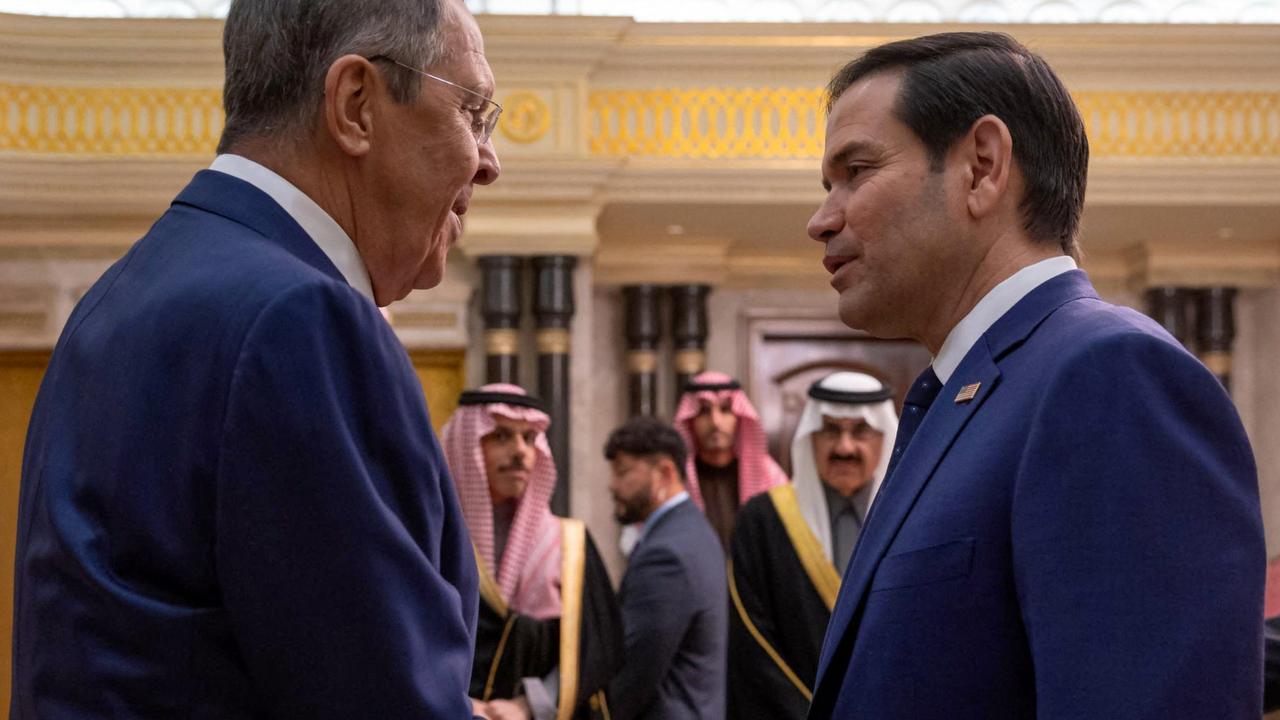
Last night the Ukrainian publication Ukrainska Pravda, citing anonymous sources, reported that American delegates at the Munich Security Conference had pressured Ukraine to sign a mineral resources agreement, and had threatened to cancel Mr Zelensky’s meeting with Vice President J.D. Vance if he refused.
The unexpected delay in the Zelensky-Vance meeting allegedly stemmed from Washington’s insistence that Ukraine accept a “minerals-for-aid” agreement without modification.
The gist of it: Ukraine gives the US precious minerals in return for aid in the war.
The deal, first proposed by US President Donald Trump earlier this month, would grant the US a massive stake in Ukraine’s rare earth minerals and other critical resources.
A diplomatic mess ensued.
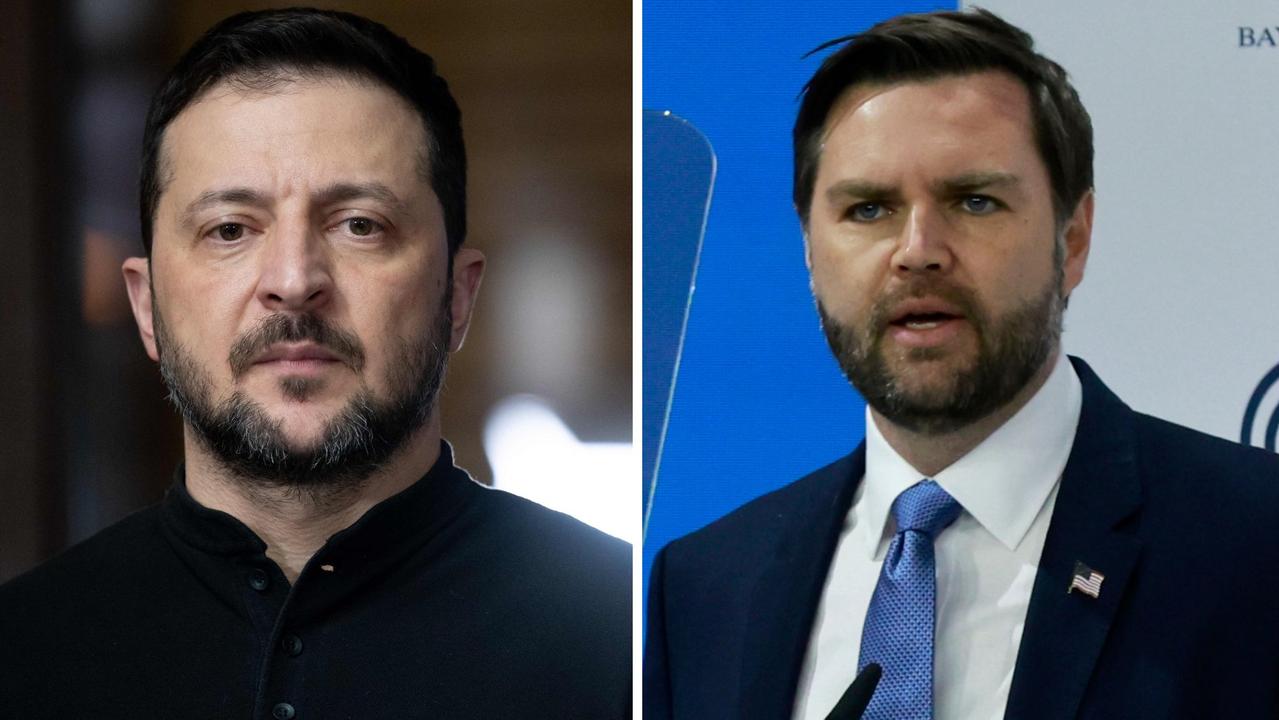
Pravda’s sources said US officials had rejected Ukraine’s proposed amendments to the deal, and took a hard-line stance: either sign it as drafted, or forgo the meeting with Mr Vance.
But when Kyiv refused to sign on America’s terms, the meeting went ahead anyway.
On Monday, Mr Zelensky confirmed that Mr Trump’s administration had proposed a deal that would give the US a 50 per cent stake in Ukraine’s rare earth minerals. But he made it clear he wasn’t willing to accept the terms as they stood.
“We are not just a raw material country, and this must be clearly stated in the document,” Mr Zelensky said.
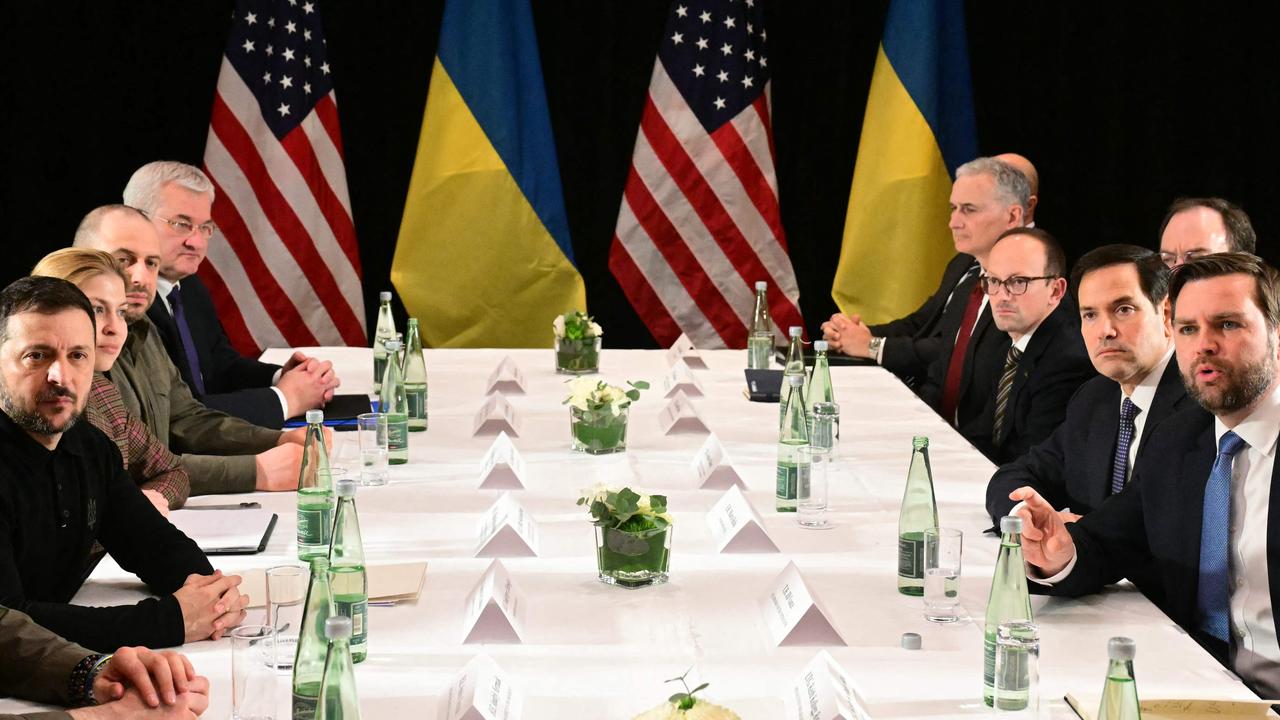
Talks between US and Russia
Meanwhile, in Saudi Arabia, the US and Russia met for about four hours of talks. Ukraine was not present.
According to Bloomberg, the two nations who were present agreed to work towards ending the war in Ukraine “as soon as possible in a way that is enduring, sustainable and acceptable to all sides”.
And that included a “determination” to remove the economic sanctions imposed in both directions. Russia has, of course, been under quite severe sanctions since 2014, when Putin’s forces illegally seized Ukraine’s Crimean Peninsula, and those sanctions were tightened even further when the Russians launched a full-scale invasion of Ukraine in early 2022.
In the words of Lavrov, which it must be said should not be trusted without question, the United States and Russia both expressed “great interest in removing artificial barriers to the development of mutually beneficial economic co-operation”.\
The “artificial barriers” here are, of course, the sanctions.
Mr Rubio was accompanied, in the talks, by national security adviser Mike Waltz and Donald Trump’s Middle East envoy Steve Witkoff.
Senior Russian presidential aide Yuri Ushakov joined Lavrov, alongside Saudi officials facilitating the discussions.
“Today is the first step of a long and difficult journey, but an important one,” Mr Rubio said following the meeting.
“There have to be concessions made by all sides. We’re not going to predetermine what those are.”
Mr Rubio insisted that “no one is being sidelined” after anger from Europe and Ukraine that they were not invited to the Riyadh talks.
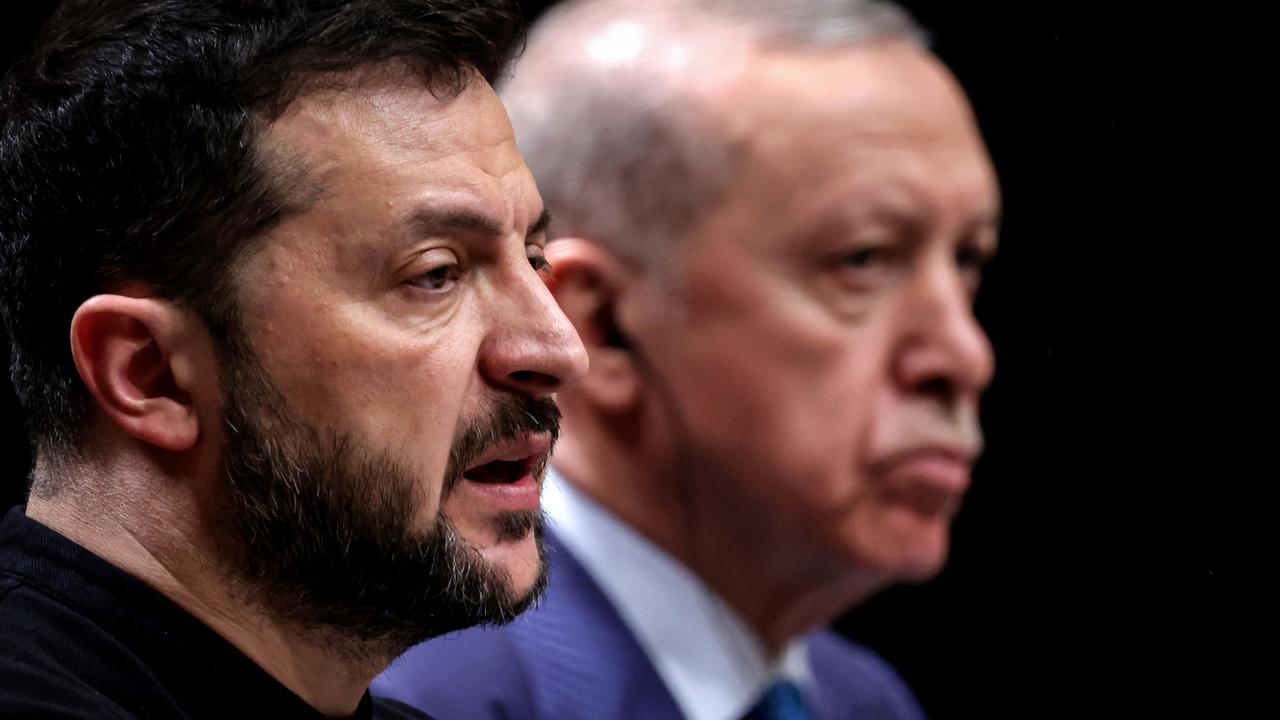
“Everyone involved in that conflict has to be OK with (a deal),” he said.
Lavrov said it was “a very useful conversation”.
“We listened to each other, and we heard each other,” he said.
The US had conceded ground to Russia, perhaps accidentally, before the talks even began. Last week the man appointed Defence Secretary by Mr Trump, former Fox News host Pete Hegseth, explicitly said that NATO membership for Ukraine was an unrealistic prospect – something Moscow would have otherwise used as a negotiating point.
Mr Hegseth rowed back his remarks the next day, but that was undermined somewhat when Mr Trump himself expressed support for his Defence Secretary’s original stance.
Lavrov laid out more demands during the meeting in Riyadh.
He rubbished the idea of placing a European peacekeeping force in Ukraine, even if the forces in question weren’t to technically represent NATO.
“Any appearance by armed forces under some other flag does not change anything. It is of course completely unacceptable,” said Lavrov.
In practice, the absence of peacekeeping forces would mean Ukraine having very little in the form of security guarantees. And Mr Zelensky’s government would have to be fearful of yet another Russian attack, once Putin’s forces reconstitute themselves.
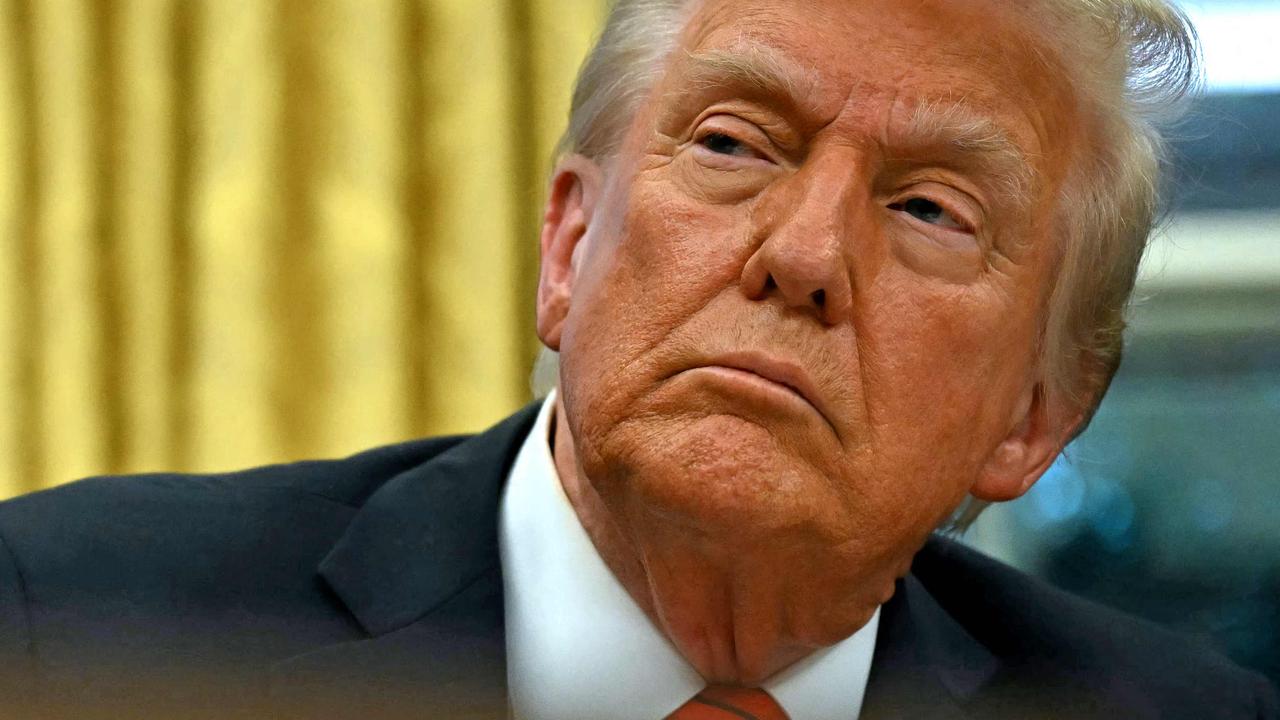
Speaking from Turkey, a seemingly exasperated Mr Zelensky once again stressed that his nation had not been invited to the talks, and he raised concerns in Europe over Mr Trump’s recent comments, which the US President’s critics believe were too soft on Putin.
Talks “are taking place between representatives of Russia and representatives of the United States of America, about Ukraine, and without Ukraine,” Mr Zelensky said.
“We want everything to be fair so nobody decides anything behind our back.
“You cannot make decisions without Ukraine on how to end the war in Ukraine.”
US State Department spokesman Tammy Bruce, another former Fox News personality, downplayed expectations, saying the talks were not about “moving forward in some kind of a negotiation”.
Both Russia and Ukraine remain unwilling to make territorial concessions, and while Mr Zelensky has expressed a willingness to meet Putin, he insists that Ukraine and its allies must first establish a united stance on ending the war.
Ukraine faces an increasingly uncertain future as Mr Trump continues to criticise US military aid to the country – a lifeline that has helped keep it intact.
For now, the Riyadh talks signal a shift in America’s approach — but how far Mr Trump is willing to go in reshaping US-Russia relations remains to be seen.
More Coverage
Originally published as Donald Trump tells invaded Ukraine it ‘should have never started’ war with Russia as controversy erupts over its exclusion from peace talks


